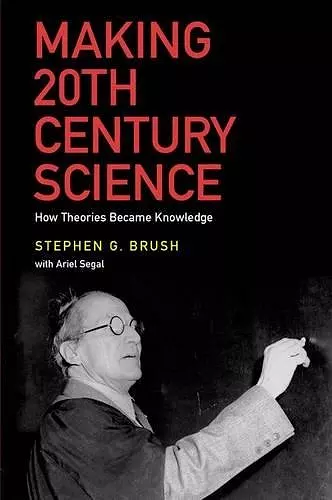Making 20th Century Science
How Theories Became Knowledge
Format:Hardback
Publisher:Oxford University Press Inc
Published:7th May '15
Currently unavailable, and unfortunately no date known when it will be back

Historically, the scientific method has been said to require proposing a theory, making a prediction of something not already known, testing the prediction, and giving up the theory (or substantially changing it) if it fails the test. A theory that leads to several successful predictions is more likely to be accepted than one that only explains what is already known but not understood. This process is widely treated as the conventional method of achieving scientific progress, and was used throughout the twentieth century as the standard route to discovery and experimentation. But does science really work this way? In Making 20th Century Science, Stephen G. Brush discusses this question, as it relates to the development of science throughout the last century. Answering this question requires both a philosophically and historically scientific approach, and Brush blends the two in order to take a close look at how scientific methodology has developed. Several cases from the history of modern physical and biological science are examined, including Mendeleev's Periodic Law, Kekule's structure for benzene, the light-quantum hypothesis, quantum mechanics, chromosome theory, and natural selection. In general it is found that theories are accepted for a combination of successful predictions and better explanations of old facts. Making 20th Century Science is a large-scale historical look at the implementation of the scientific method, and how scientific theories come to be accepted.
Making Twentieth Century Science is certain to become a definitive history of scientific theory choice. * Joseph D. Martin, Isis Journal *
Brushs book is a good and useful reading foreverybody interested in learning something about the workings of current science, but, for the same reasons, it is almost mandatory for those dealing with science education. * Olival Freire Jr, Science and Education *
ISBN: 9780199978151
Dimensions: 237mm x 176mm x 41mm
Weight: 916g
552 pages